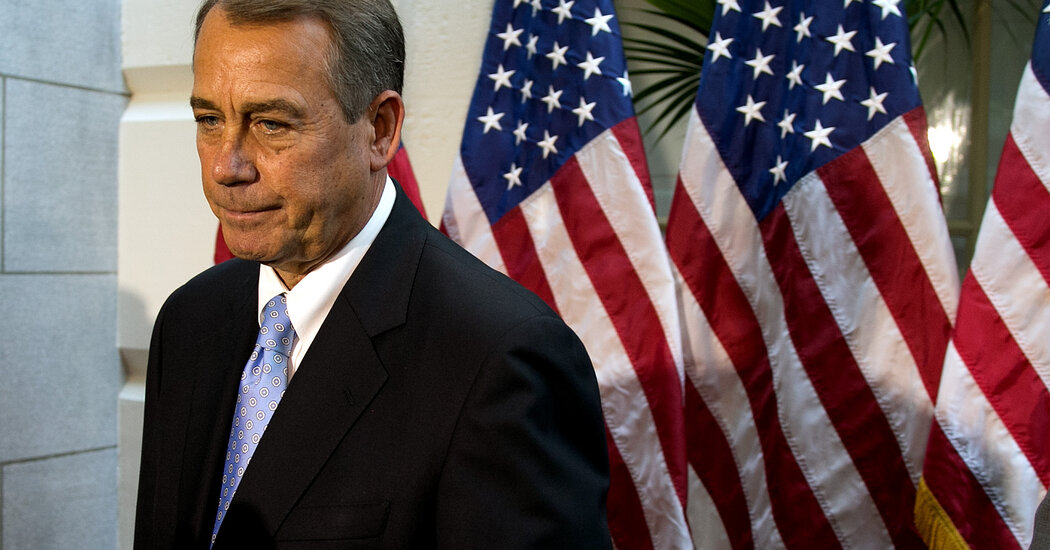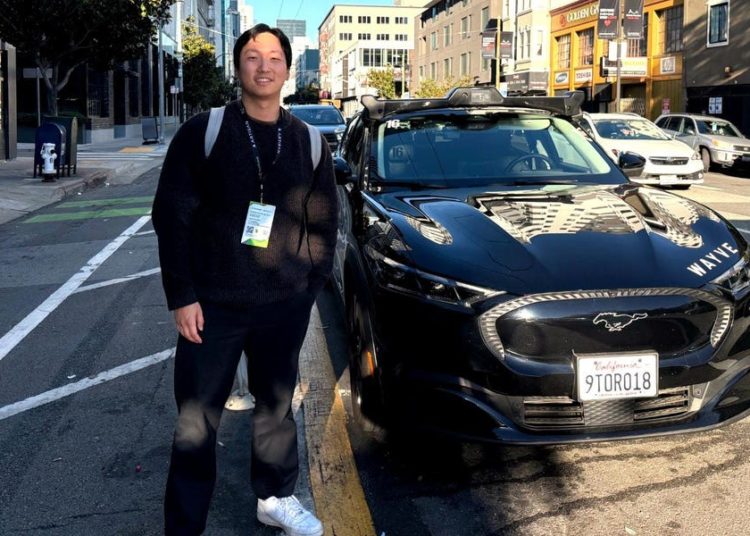The last time Obamacare was at the center of a federal shutdown, with lawmakers seeking to use the leverage of a government funding deadline to get their way on the health insurance program, it did not end well for them.
It was 2013, and conservative Republicans in the House and Senate pushed their leaders to block legislation to extend government spending unless it also repealed the Affordable Care Act. The result was a 16-day shutdown that produced no changes to the sweeping law.
While some of the characters are the same, the dynamic of today’s shutdown is the complete opposite. This time, it is Democrats using their leverage to try to fortify Obamacare by extending tax credits for rising premiums, while Republicans assail them for the hardships mounting from the cutoff of government services.
The 2013 case ended as a debacle for Republicans as they tried and failed to kill President Barack Obama’s signature legislative achievement while Democrats controlled the Senate. It was never going to happen.
Whether Democrats can be more successful this time around facing off against Republicans who have long targeted Obamacare remains to be seen. But trying to force policy changes through shutdown politics has not been fruitful in the past.
“We shut down the government for 35 days to build the wall, and it didn’t get the wall built,” said Senator Lindsey Graham, Republican of South Carolina, ruefully recalling an unsuccessful shutdown that began at the end of 2018 and went on to become the longest-ever government closure, a distinction that could be lost next week. “We tried to repeal Obamacare by shutting down the government. Shutting down the government to get a policy never works for anybody.”
Democrats say the outcome could be different this year, because they are trying to preserve a benefit for Americans rather than strip one away, as Republicans were trying to do in 2013. They have been buoyed by polls showing that more Americans blame Republicans than Democrats for the current closure, and that the health care subsidies are overwhelmingly popular. They have also so far defied G.O.P. expectations that they would fold.
“One of the reasons this is having such resonance and we are showing such unity is because we are asking for what people really want and need, and all of a sudden it is being taken away from them,” Senator Chuck Schumer, Democrat of New York and the minority leader, said of the health insurance subsidies. “It is different from the issue of 2013.”
Unlike more recent shutdowns that have materialized suddenly when negotiations over spending broke down, the 2013 disruption came at the end of an extended conservative campaign to “defund” Obamacare, even though Mr. Obama was still in the White House and would have had to sign off on any such move.
That summer, Republicans began clamoring for members of their party to hold firm against any government funding unless it included a repeal of the health law before its implementation date of Jan. 1, 2014.
“We have a chance to stop this, and it may be our last best chance,” Marco Rubio, then a Republican senator from Florida, said in July 2013. “And it comes in September, when we have to pass a short-term budget in this chamber.”
Senators Ted Cruz of Texas and Mike Lee of Utah, both Republicans, enthusiastically joined in the effort with the full-throated backing of right-wing conservative advocacy groups. The fight against Obamacare was on.
There was just one small problem. Many other Republicans believed the anti-Obamacare campaign was badly misguided and doomed to fail. Senator Richard Burr, Republican of North Carolina and a close ally of Speaker John A. Boehner, labeled it “the dumbest idea I have ever heard of.” Senator John McCain, Republican of Arizona, had already coined the memorable name “wacko birds” to describe colleagues he believed were initiating what he saw as quixotic, publicity-seeking campaigns.
Senator Harry Reid, Democrat of Nevada and the majority leader, urged Republicans to study who had won previous showdowns before getting too deep into another one.
“I would suggest any of my Republican colleagues who has this idea, give a call to Newt Gingrich,” he said, naming the former House speaker who had engaged in damaging shutdown politics over Medicare during the Clinton administration. “It was disastrous for Newt Gingrich, the Republicans and the country.”
As the end of the fiscal year approached with no agreement, Mr. Cruz, then a first-term senator, took to the floor for a 21-hour speech against Obamacare in which he famously read the children’s book “Green Eggs and Ham.” Mr. Cruz rallied House Republicans, who held the majority, to hold the line against the Affordable Care Act even though many of his own colleagues in the Senate were opposed to the approach.
With House Republicans sticking by their demand to strip Obamacare funding from a short-term spending bill against bipartisan Senate opposition, the government closed on Oct. 1 for 16 frantic days. There was much more activity to try and resolve the impasse compared to this year’s shutdown, with the House still absent.
Republicans finally threw in the towel on Oct. 16 as they licked their wounds, and the recriminations ensued. The fight elevated Mr. Cruz in conservative circles but also earned him the enmity of Republicans who believed he had gotten them into a no-win situation.
Mr. Boehner years later lampooned him as “Lucifer in the flesh.” Republicans also bemoaned the fact that the shutdown repercussions had blunted some of the political fallout for Democrats from the disastrous rollout of the Obamacare website.
Years later, Obamacare is again the central issue as the current shutdown extends well beyond the length of the 2013 episode, and barrels toward eclipsing the 2019 closure. Republicans say they are open to negotiating a fix for the expiring health care subsidies, but only after Democrats vote to reopen the government — a step they have so far refused to take.
As the Senate left town Thursday for the weekend, the shutdown vibe had shifted. More lawmakers in both parties were suggesting that an opening existed to resolve the fight in the days ahead, spurred by federal nutrition programs potentially running out of money and the Trump administration refusing to spend contingency funds to maintain the benefits. A federal judge ordered the administration on Friday to continue paying for food stamps during the shutdown.
Senators said that talks among small “gangs” of lawmakers trying to find a way out of the shutdown would continue through the weekend, as they braced for a breakthrough.
Elections around the country on Tuesday were also considered a factor, with Democrats favored to post victories. Such wins could allow them to declare that the voters were behind them, and that they had successfully put the focus on rising health care costs and forced Republicans to confront the issue.
That would represent at least the chance to claim some measure of victory out of the costly and disruptive shutdown — certainly a better outcome than Republicans faced in 2013.
Carl Hulse is the chief Washington correspondent for The Times, primarily writing about Congress and national political races and issues. He has nearly four decades of experience reporting in the nation’s capital.
The post Shutdowns, Obamacare and the Risks of Bargaining for Policy Wins in a Crisis appeared first on New York Times.




